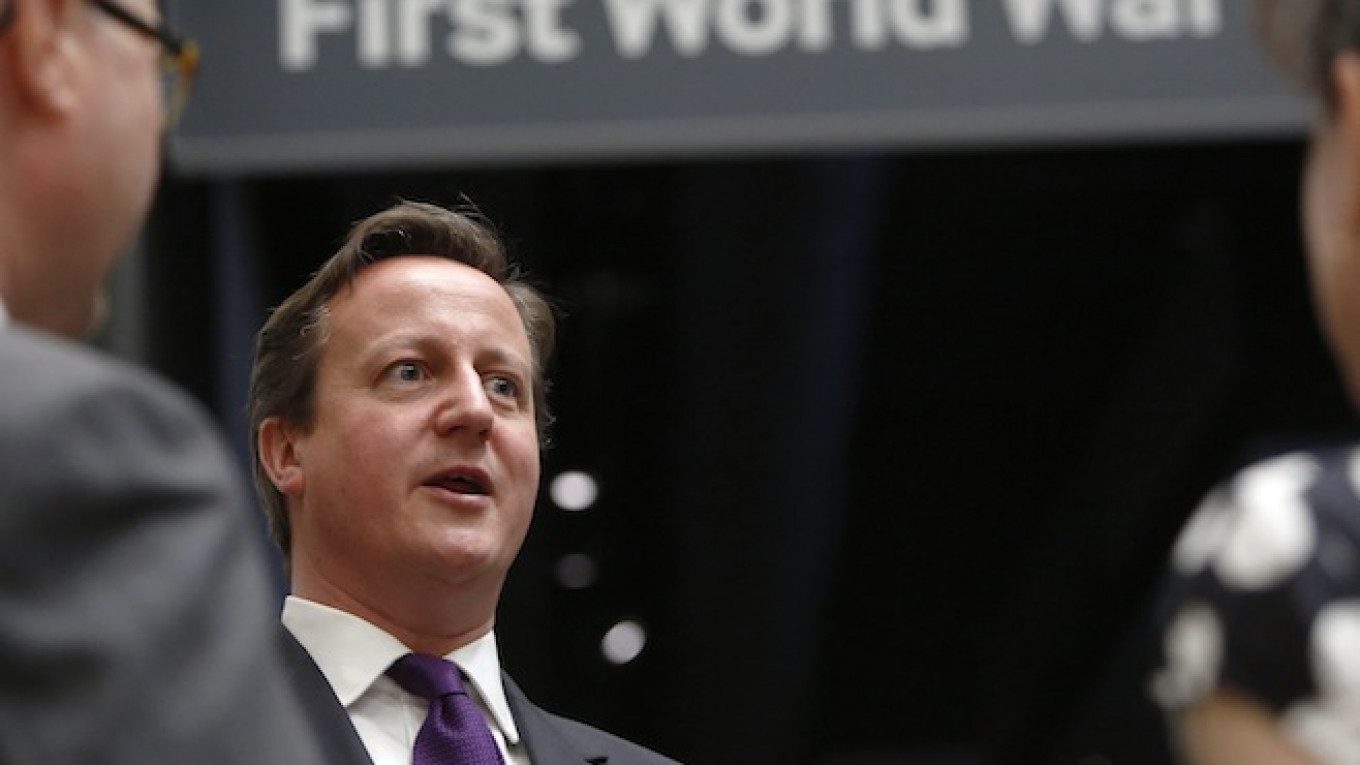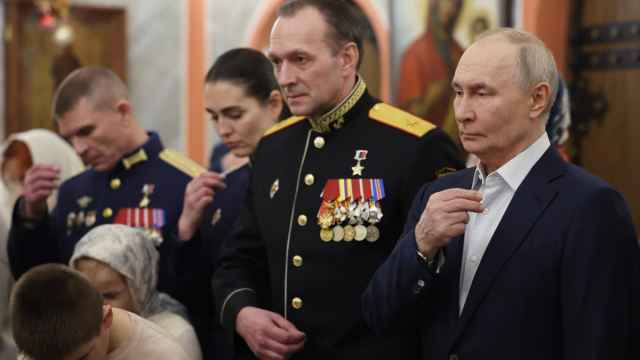LONDON — Lawmakers on Wednesday queried why Britain had granted licenses to sell tens of millions of pounds worth of arms to Russia, embarrassing Prime Minister David Cameron, who has called for a Europe-wide ban on such sales because of the Ukraine crisis.
The criticism, in a report compiled by four of parliament's select committees, comes two days after the British leader said France's sale of two helicopter carriers to Russia would be "unthinkable" in Britain.
The government said in March it would stop some arms exports to Russia, but the report said that as of mid-May only 34 of 285 outstanding licenses worth more than £131 million ($223.41 million) had been suspended or revoked.
"We should have been applying a more cautious approach for some considerable time towards Russia," said John Stanley, chairman of parliament's Committees on Arms Export Controls.
"Many people … given the nature of the Russian regime, will be wondering why it is the U.K. is giving export approval to a particular number of items on that list."
A spokesman for Cameron said Britain had halted all arms exports destined for the Russian military, calling the ban "comprehensive." He said licenses for other users, such as hunting enthusiasts, had not been blocked, however.
In a separate statement, a government spokesman said it had never approved the export of missiles or missile parts to the Russian military, despite suggestions from local media that it had. Nor had it approved licenses for the export of rifles or ammunition to the Russian military, he said.
The lawmakers' report covered exports in 2013, before the current ban on arms sales to the Russian military entered into force, the spokesman said.
At odds with the government, lawmakers asked the government to explain why it had approved contracts for everything from body armor to components for assault rifles and military communications equipment.
Cameron has talked tough on Russia following the downing of a Malaysian airliner last week, saying Britain will no longer sell arms to Moscow. He has also said the weight of evidence suggests the plane was shot down by a missile fired from territory in eastern Ukraine held by pro-Russian separatists.
See also:
A Message from The Moscow Times:
Dear readers,
We are facing unprecedented challenges. Russia's Prosecutor General's Office has designated The Moscow Times as an "undesirable" organization, criminalizing our work and putting our staff at risk of prosecution. This follows our earlier unjust labeling as a "foreign agent."
These actions are direct attempts to silence independent journalism in Russia. The authorities claim our work "discredits the decisions of the Russian leadership." We see things differently: we strive to provide accurate, unbiased reporting on Russia.
We, the journalists of The Moscow Times, refuse to be silenced. But to continue our work, we need your help.
Your support, no matter how small, makes a world of difference. If you can, please support us monthly starting from just $2. It's quick to set up, and every contribution makes a significant impact.
By supporting The Moscow Times, you're defending open, independent journalism in the face of repression. Thank you for standing with us.
Remind me later.






